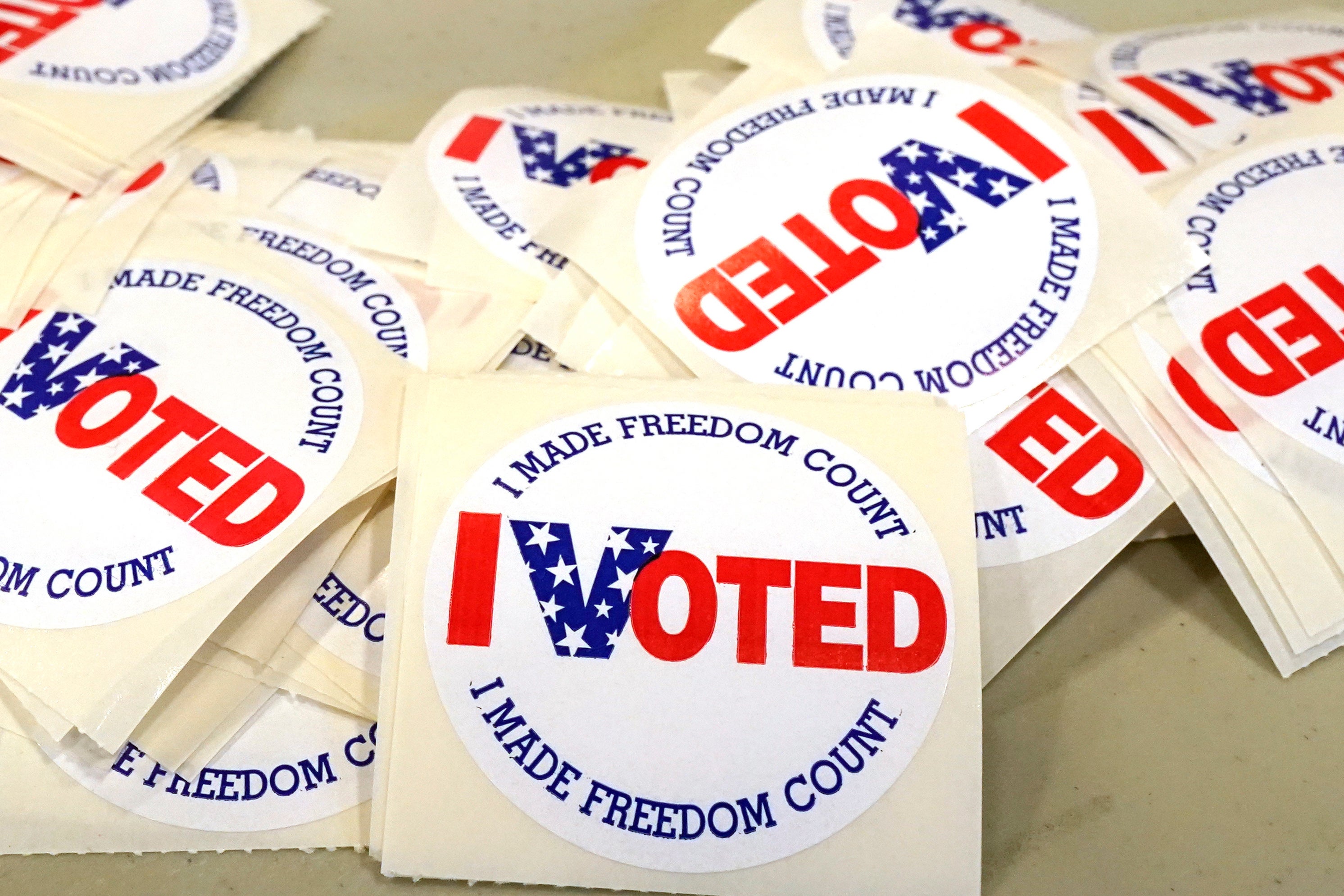Court blocks Mississippi ban on voting after some crimes, but GOP official will appeal ruling
Mississippi is violating the U.S. Constitution’s ban on cruel and unusual punishment by permanently stripping voting rights from people convicted of some felonies

Your support helps us to tell the story
From reproductive rights to climate change to Big Tech, The Independent is on the ground when the story is developing. Whether it's investigating the financials of Elon Musk's pro-Trump PAC or producing our latest documentary, 'The A Word', which shines a light on the American women fighting for reproductive rights, we know how important it is to parse out the facts from the messaging.
At such a critical moment in US history, we need reporters on the ground. Your donation allows us to keep sending journalists to speak to both sides of the story.
The Independent is trusted by Americans across the entire political spectrum. And unlike many other quality news outlets, we choose not to lock Americans out of our reporting and analysis with paywalls. We believe quality journalism should be available to everyone, paid for by those who can afford it.
Your support makes all the difference.Mississippi is violating the U.S. Constitution's ban on cruel and unusual punishment by permanently stripping voting rights from people convicted of some felonies, a federal appeals court panel ruled in a split decision Friday.
Two judges on the 5th U.S. Circuit Court of Appeals panel ordered the Mississippi secretary of state to stop enforcing a provision in the state constitution that disenfranchises people convicted of specific crimes, including murder, forgery and bigamy.
If the ruling stands, thousands of people could regain voting rights, possibly in time for the Nov. 7 general election for governor and other statewide offices.
Mississippi Republican Attorney General Lynn Fitch expects to ask the full appeals court to reconsider the panel’s 2-1 ruling, her spokesperson, Debbee Hancock, said Friday.
The 5th Circuit is one of the most conservative appeals courts in the U.S., and in 2022 it declined to overturn Mississippi's felony disenfranchisement provisions — a ruling that came in a separate lawsuit. In June, the U.S. Supreme Court said it would not consider that case, allowing the 2022 appeals court ruling to stand.
The two lawsuits use different arguments.
The suit that the Supreme Court declined to hear was based on arguments about equal protection. Plaintiffs said that the Jim Crow-era authors of the Mississippi Constitution stripped voting rights for crimes they thought Black people were more likely to commit, including forgery, larceny and bigamy.
The lawsuit that the appeals court panel ruled on Friday is based on arguments that Mississippi is imposing cruel and unusual punishment with a lifetime ban on voting after some felony convictions.
“Mississippi stands as an outlier among its sister states, bucking a clear and consistent trend in our Nation against permanent disenfranchisement,” wrote Judges Carolyn Dineen King and James L. Dennis.
Under the Mississippi Constitution, people convicted of 10 specific felonies — including murder, forgery and bigamy — lose the right to vote. The state’s attorney general expanded the list to 22 crimes, including timber larceny and carjacking.
To have their voting rights restored, people convicted of any of the crimes must get a pardon from the governor or persuade lawmakers to pass individual bills just for them with two-thirds approval. Lawmakers in recent years have passed few of those bills, and they passed none this year.
In the ruling Friday, the two judges in favor of restoring voting rights — King and Dennis — were nominated by Democratic presidents and the one who disagreed — Judge Edith H. Jones — was nominated by a Republican president.
In her dissent, Jones wrote that when the Supreme Court ruled that the Equal Protection Clause does not bar states from permanently disenfranchising felons, justices said people should seek change through state legislatures.
“Today, the court turns that advice on its head," Jones wrote. "No need to change the law through a laborious political process. The court will do it for you, so long as you rely on the Due Process Clause, rather than the Equal Protection Clause.”
A coalition of disparate groups supports reinstating voting rights to felons, including the libertarian Cato Institute, the American Probation and Parole Association, and the American Civil Liberties Union and the Mississippi branch of the NAACP.
Subscribe to Independent Premium to bookmark this article
Want to bookmark your favourite articles and stories to read or reference later? Start your Independent Premium subscription today.